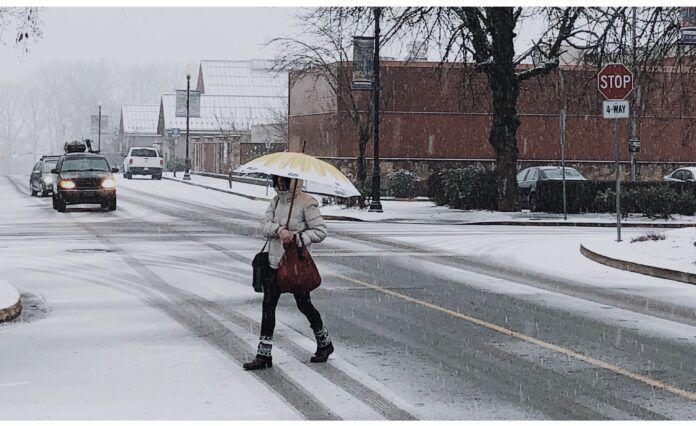Regions across Vancouver Island experienced the first snowfall, which resulted in slow traffic, residents without power, downed trees and emergency crews working until all hours of the night.
Ladysmith Fire was busy during the snowfall because of lost power due to fallen trees from the weight of the snow, but communications officer Mike Gregory says he is thankful the situation wasn’t severe.
“There were no accidents, just 10 calls since 6:30 last night for power outages from down lines,” he says. “Thankfully it hit in the overnight hours, and not during the commute home.
“It could have been much worse.”
According to ICBC statistics, a total of 21,000 crashes were reported from Oct. To Dec. Between 2021 and 2022 with accidents peaking in December as the season gets worse.
They add the first snowfall is typically the most severe because people haven’t either prepared their vehicle with winter tires, or they just haven’t mentally adjusted for the change in seasons.
Mainroad north island contracting general manager Chris Cowley says weather, and driving conditions, on Vancouver Island can change in the blink of an eye and drivers need to be prepared to deal with them.
“Weather patterns are nowhere near as predictable as the other parts of Canada,” Cowley says. “Rain can change to snow, and ice, very quickly on the island and drivers need to be prepared.
“Drivers need to make sure they are giving themselves enough time and have good tires if they need to head out during severe weather.”
Roads across the island were quickly doused with snow and rain to make driving treacherous in some places and Cowley says maintenance crews have solutions for all types of scenarios, but like drivers, they can also be slaves to the weather.
“We do have a lot of crews out there doing what we can, but there is no fool proof plan,” he says. “We have preventative treatment measures, but weather conditions have to be ideal for it to work.”
The province adds the best way to stay safe under extreme conditions is to avoid driving until the weather improves, but if drivers do head out ensure your vehicle is ready for winter by having an emergency kit and observing the rules in your region.



